Risk Management in Islamic Finance: Derivatives and Shariah Compliance
VerifiedAdded on 2022/08/08
|6
|586
|26
Report
AI Summary
This report delves into the critical topic of risk management within the Islamic finance sector, specifically examining the role of derivatives. It addresses the challenges in managing risk within the trillion-dollar Shariah-compliant industry and explores alternatives to conventional derivatives, which are not Shariah-compliant. The paper provides an overview of various derivative instruments, including forwards, futures, options, and swaps, and their application in Islamic finance. It also highlights the importance of Shariah compliance, analyzing the views of Shariah on conventional derivatives and underlining the features of Islamic contracts, such as Salam, Bay al Arbun, and Istijrar contracts, that can serve as a foundation for establishing Shariah-compliant derivatives. The report utilizes external sources like Bloomberg, World Cat, and Google Scholar to provide a comprehensive analysis of the subject matter. The report aims to provide insights into the current state of risk management practices and the potential for innovation in the field of Islamic finance.
1 out of 6
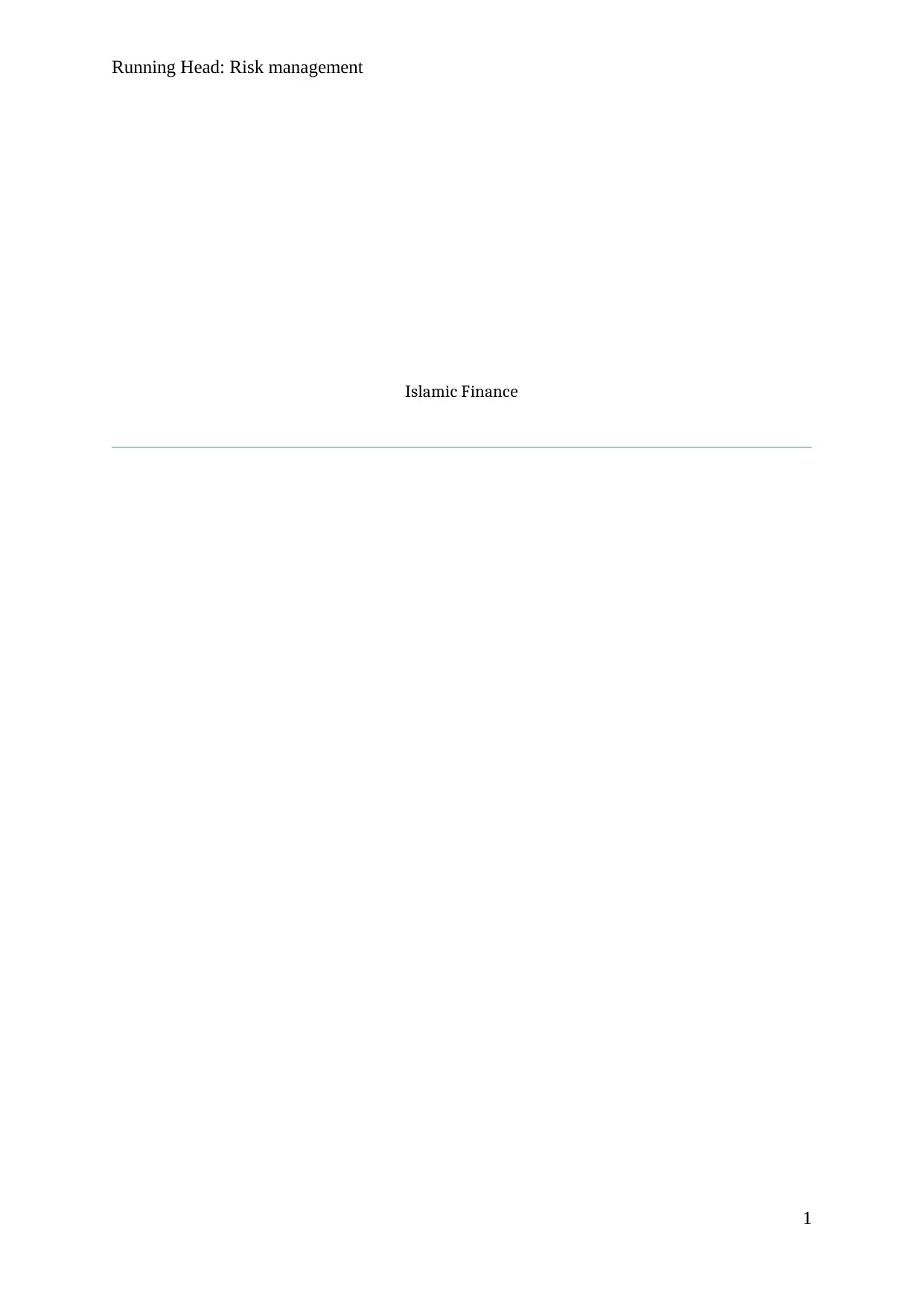
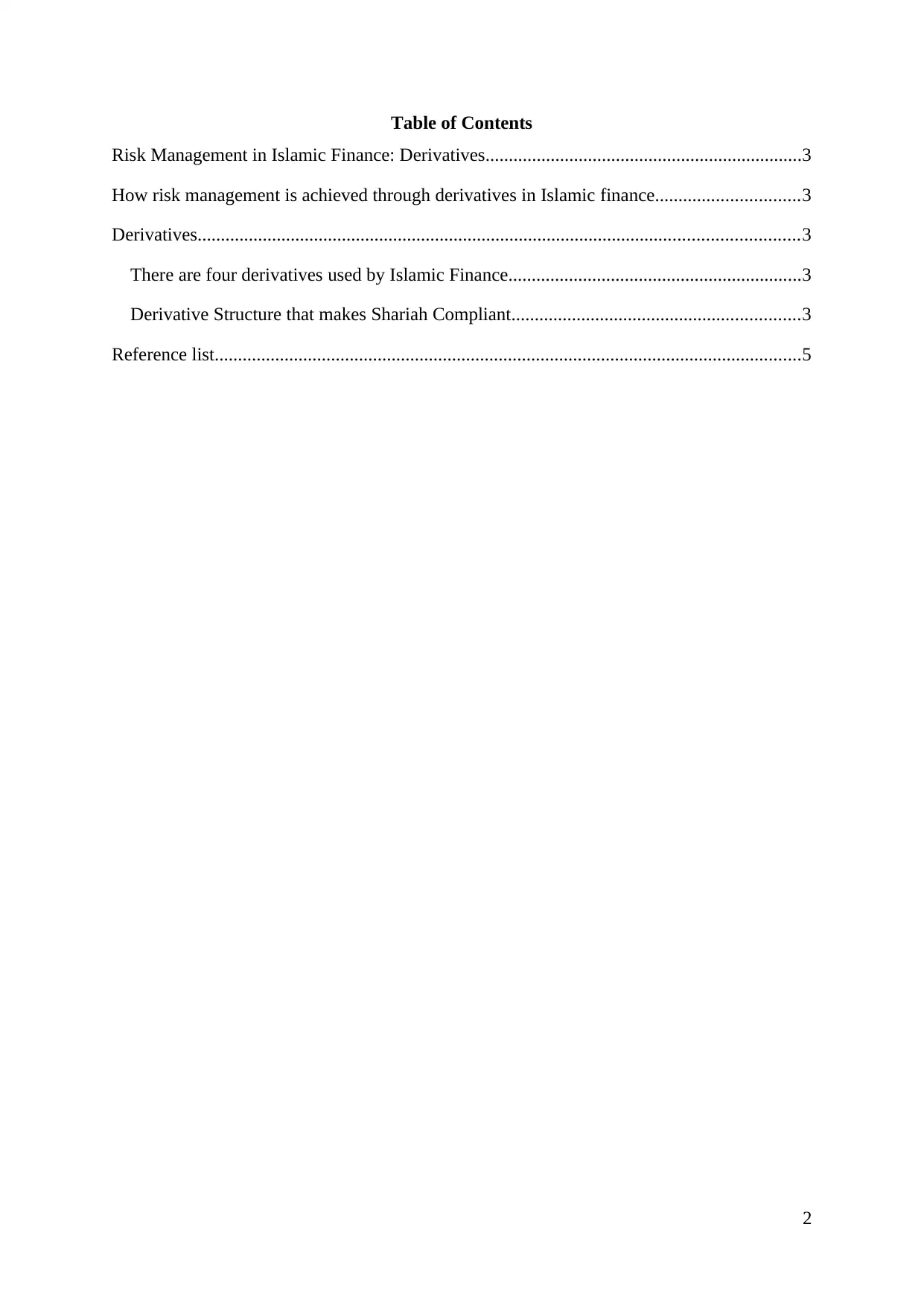
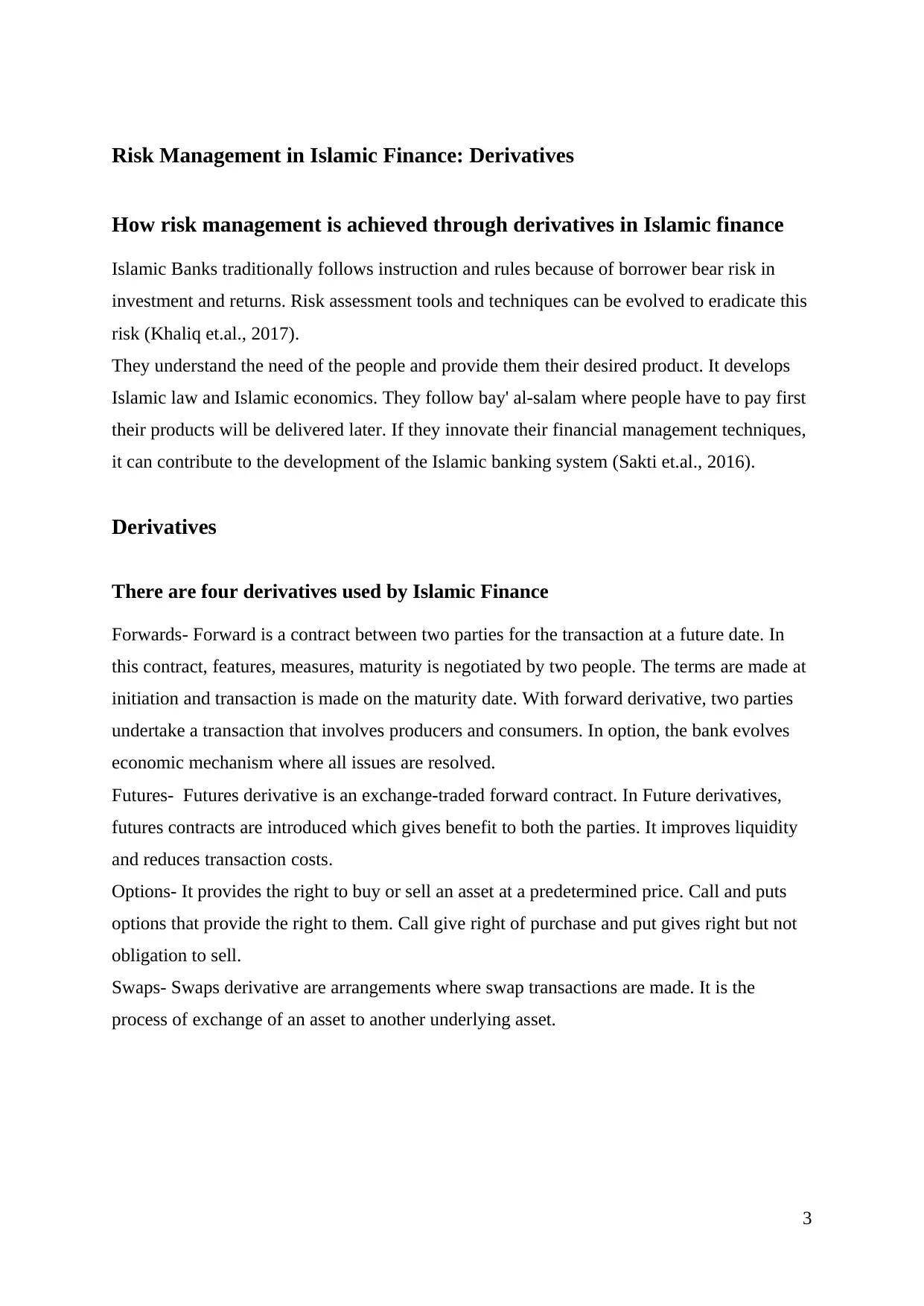

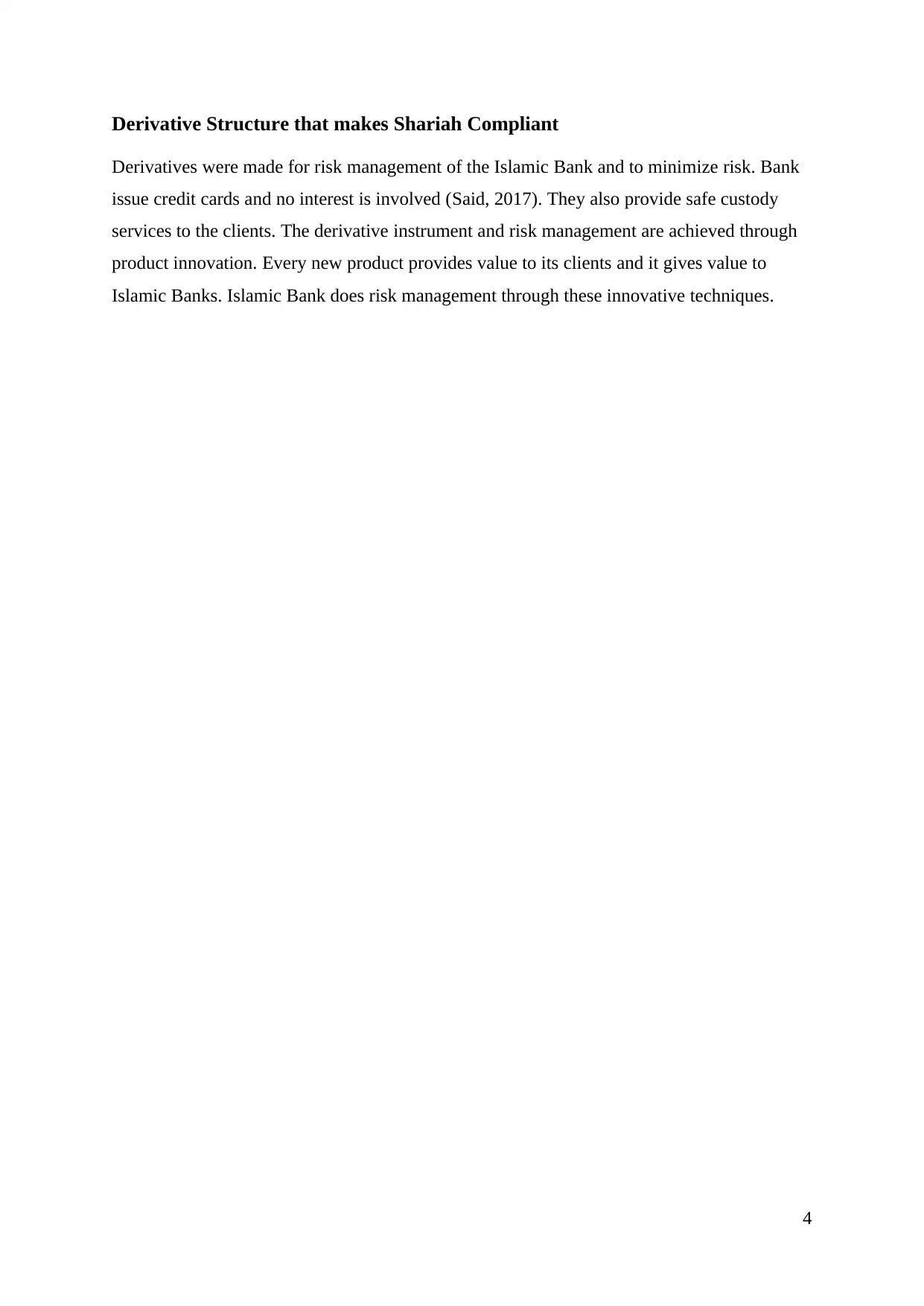
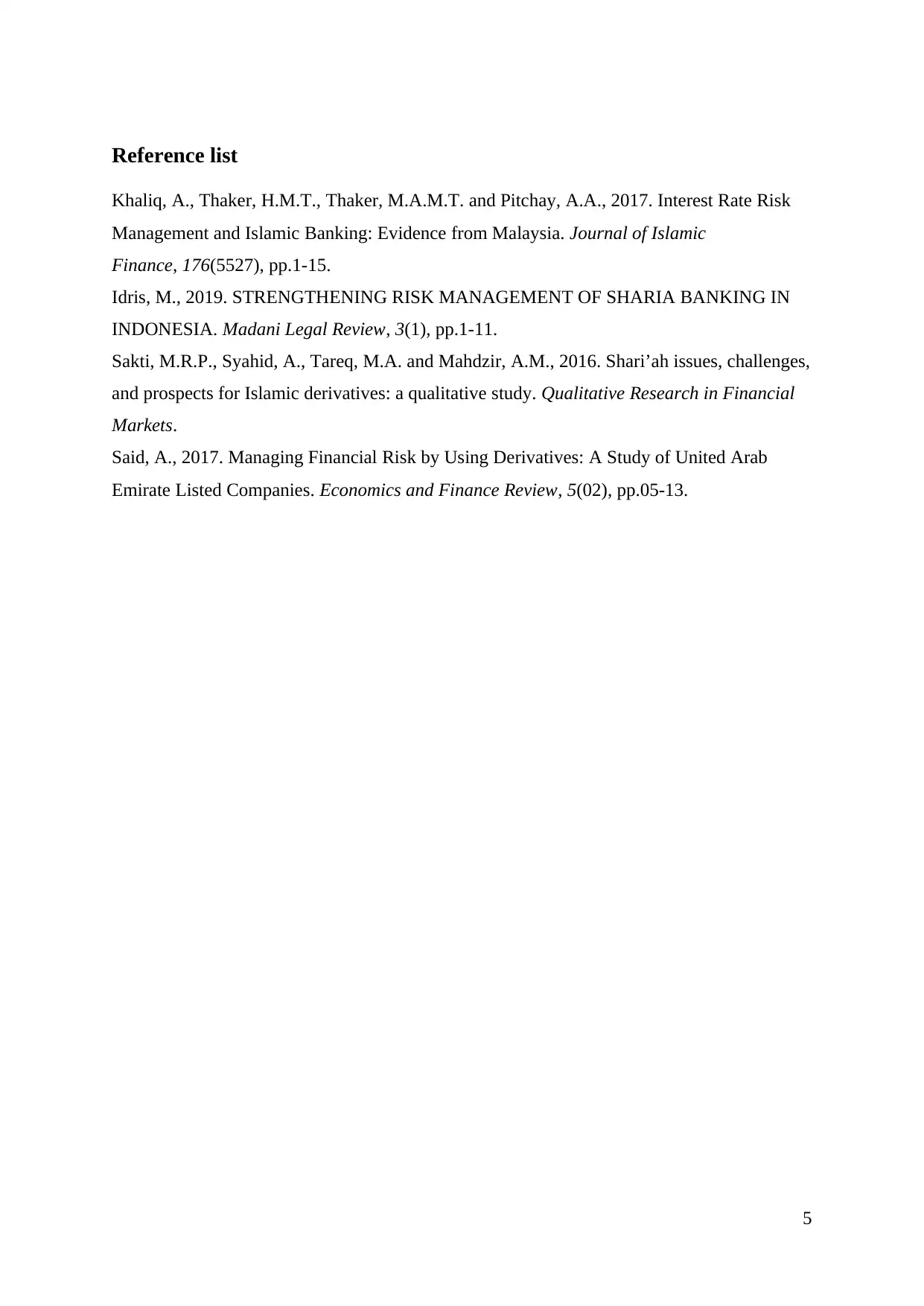







![[object Object]](/_next/static/media/star-bottom.7253800d.svg)